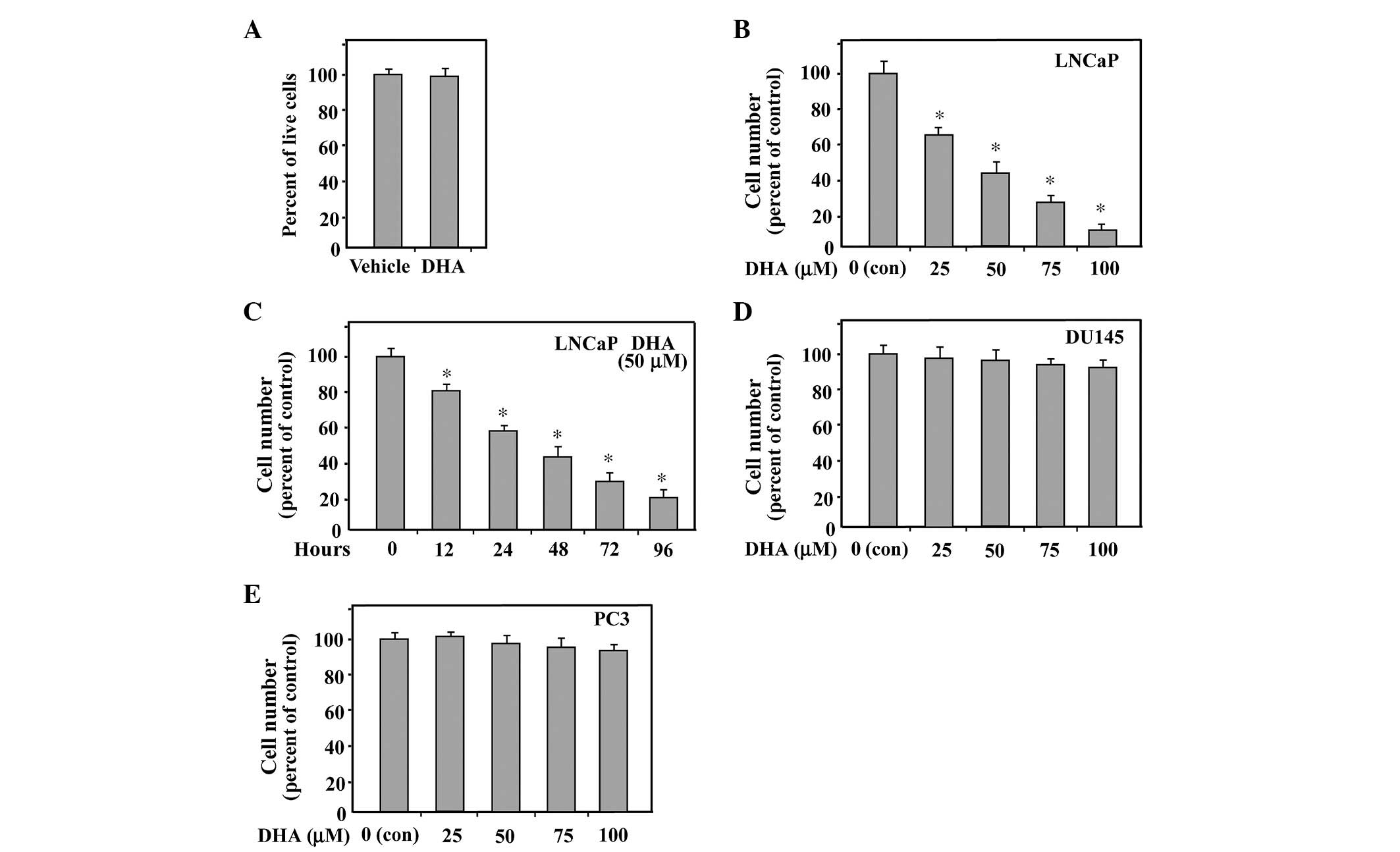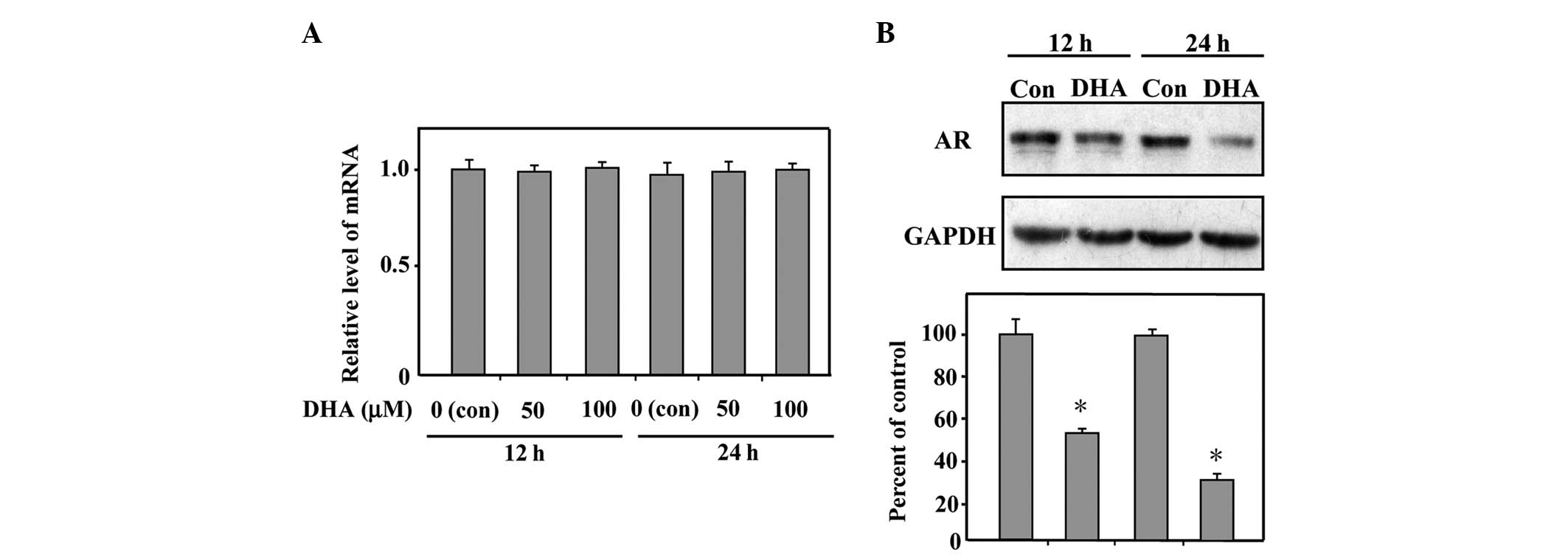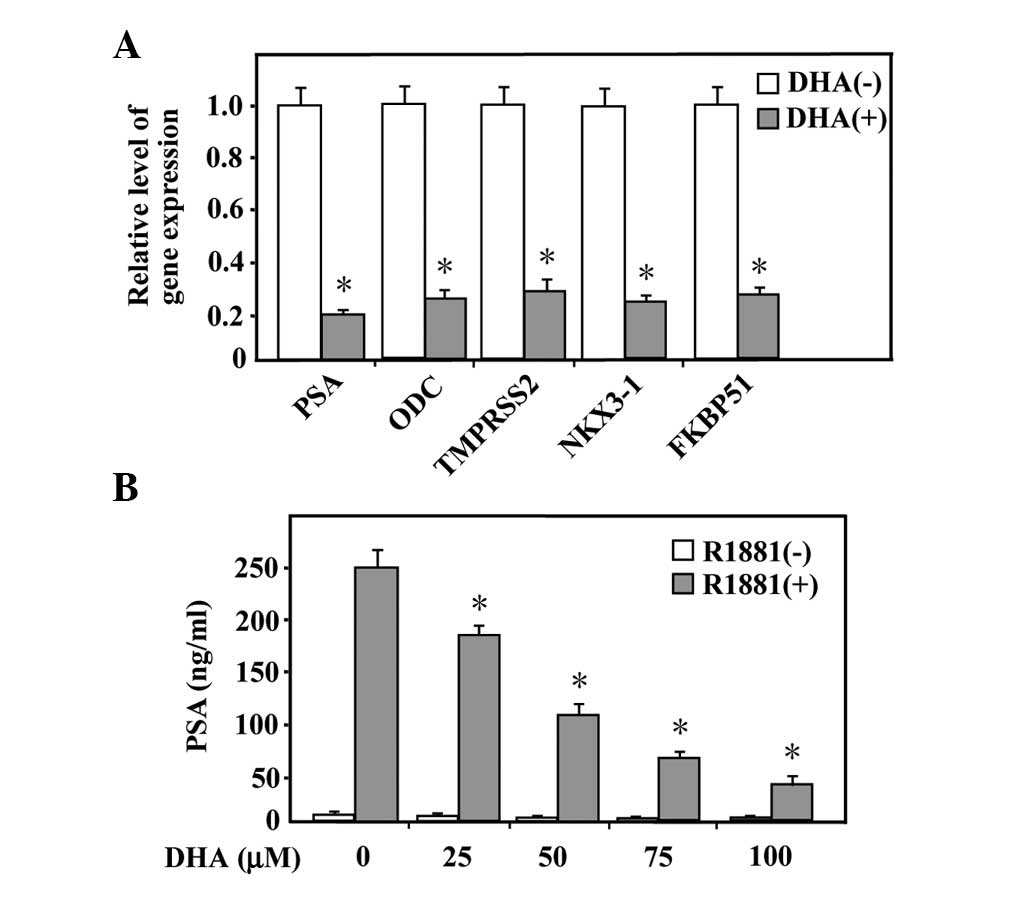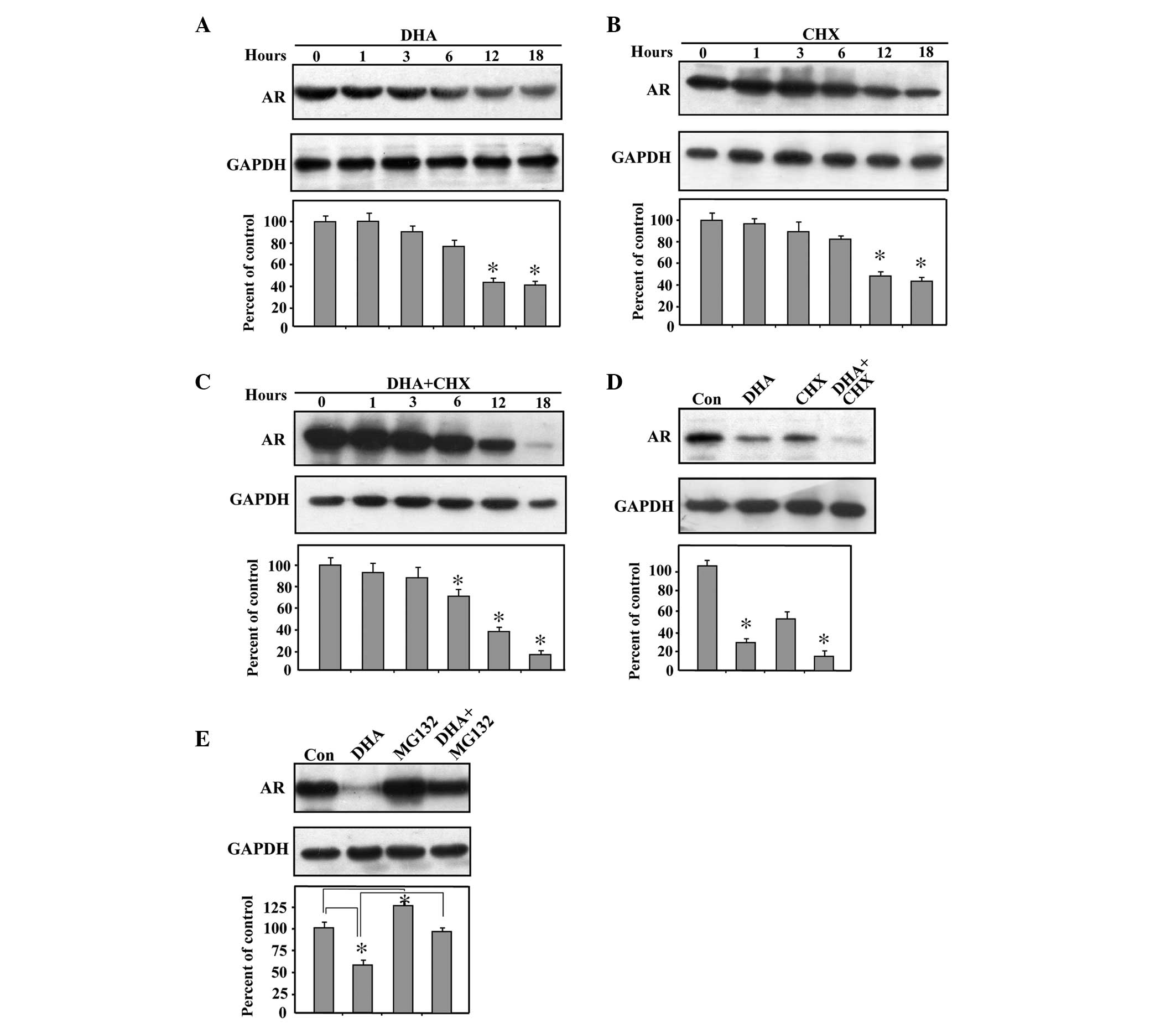|
1
|
Saman DM, Lemieux AM, Nawal Lutfiyya M and
Lipsky MS: A review of the current epidemiology and treatment
options for prostate cancer. Dis Mon. 60:150–154. 2014. View Article : Google Scholar : PubMed/NCBI
|
|
2
|
Gathirua-Mwangi WG and Zhang J: Dietary
factors and risk for advanced prostate cancer. Eur J Cancer Prev.
23:96–109. 2014. View Article : Google Scholar :
|
|
3
|
Masko EM, Allott EH and Freedland SJ: The
relationship between nutrition and prostate cancer: Is more always
better? Eur Urol. 63:810–820. 2013. View Article : Google Scholar :
|
|
4
|
Pelser C, Mondul AM, Hollenbeck AR and
Park Y: Dietary fat, fatty acids and risk of prostate cancer in the
NIH-AARP diet and health study. Cancer Epidemiol Biomarkers Prev.
22:697–707. 2013. View Article : Google Scholar : PubMed/NCBI
|
|
5
|
Wright JL, Plymate S, D'Oria-Cameron A, et
al: A study of caloric restriction versus standard diet in
overweight men with newly diagnosed prostate cancer: A randomized
controlled trial. Prostate. 73:1345–1351. 2013. View Article : Google Scholar : PubMed/NCBI
|
|
6
|
Kang JX, Wan JB and He C: Concise review:
Regulation of stem cell proliferation and differentiation by
essential fatty acids and their metabolites. Stem Cells.
32:1092–1098. 2014. View Article : Google Scholar
|
|
7
|
Olivo SE and Hilakivi-Clarke L: Opposing
effects of prepubertal low- and high-fat n-3 polyunsaturated fatty
acid diets on rat mammary tumorigenesis. Carcinogenesis.
26:1563–1572. 2005. View Article : Google Scholar : PubMed/NCBI
|
|
8
|
Chen Z, Zhang Y, Jia C, et al: mTORC1/2
targeted by n-3 polyunsaturated fatty acids in the prevention of
mammary tumorigenesis and tumor progression. Oncogene.
33:4548–4557. 2014. View Article : Google Scholar
|
|
9
|
Apte SA, Cavazos DA, Whelan KA and
Degraffenried LA: A low dietary ratio of omega-6 to omega-3 Fatty
acids may delay progression of prostate cancer. Nutr Cancer.
65:556–562. 2013. View Article : Google Scholar : PubMed/NCBI
|
|
10
|
Chua ME, Sio MC, Sorongon MC and Dy JS:
Relationship of dietary intake of omega-3 and omega-6 Fatty acids
with risk of prostate cancer development: A meta-analysis of
prospective studies and review of literature. Prostate Cancer.
2012:8262542012. View Article : Google Scholar : PubMed/NCBI
|
|
11
|
Akinsete JA, Ion G, Witte TR and Hardman
WE: Consumption of high ω-3 fatty acid diet suppressed prostate
tumorigenesis in C3 (1) Tag mice. Carcinogenesis. 33:140–148. 2012.
View Article : Google Scholar :
|
|
12
|
Berquin IM, Edwards IJ and Chen YQ:
Multi-targeted therapy of cancer by omega-3 fatty acids. Cancer
Lett. 269:363–377. 2008. View Article : Google Scholar : PubMed/NCBI
|
|
13
|
Virtanen JK, Mozaffarian D, Chiuve SE and
Rimm EB: Fish consumption and risk of major chronic disease in men.
Am J Clin Nutr. 88:1618–1625. 2008. View Article : Google Scholar : PubMed/NCBI
|
|
14
|
Williams CD, Whitley BM, Hoyo C, et al: A
high ratio of dietary n-6/n-3 polyunsaturated fatty acids is
associated with increased risk of prostate cancer. Nutr Res.
31:1–8. 2011. View Article : Google Scholar : PubMed/NCBI
|
|
15
|
Brasky TM, Till C, White E, et al: Serum
phospholipid fatty acids and prostate cancer risk: Results from the
prostate cancer prevention trial. Am J Epidemiol. 173:1429–1439.
2011. View Article : Google Scholar : PubMed/NCBI
|
|
16
|
Comba A, Lin YH, Eynard AR, Valentich MA,
Fernandez-Zapico ME and Pasqualini ME: Basic aspects of tumor cell
fatty acid-regulated signaling and transcription factors. Cancer
Metastasis Rev. 30:325–342. 2011. View Article : Google Scholar : PubMed/NCBI
|
|
17
|
Stillwell W, Shaikh SR, Zerouga M,
Siddiqui R and Wassall SR: Docosahexaenoic acid affects cell
signaling by altering lipid rafts. Reprod Nutr Dev. 45:559–579.
2005. View Article : Google Scholar : PubMed/NCBI
|
|
18
|
Bazan NG: Omega-3 fatty acids,
pro-inflammatory signaling and neuroprotection. Curr Opin Clin Nutr
Metab Care. 10:136–141. 2007. View Article : Google Scholar : PubMed/NCBI
|
|
19
|
Balk SP: Androgen receptor functions in
prostate cancer development and progression. Asian J Androl.
16:561–564. 2014. View Article : Google Scholar : PubMed/NCBI
|
|
20
|
Taplin ME and Balk SP: Androgen receptor:
A key molecule in the progression of prostate cancer to hormone
independence. J Cell Biochem. 91:483–490. 2004. View Article : Google Scholar : PubMed/NCBI
|
|
21
|
Wang LG, Ossowski L and Ferrari AC:
Androgen receptor level controlled by a suppressor complex lost in
an androgen-independent prostate cancer cell line. Oncogene.
23:5175–5184. 2004. View Article : Google Scholar : PubMed/NCBI
|
|
22
|
Chen CD, Welsbie DS, Tran C, Baek SH, Chen
R, Vessella R, Rosenfeld MG and Sawyers CL: Molecular determinants
of resistance to antiandrogen therapy. Nat Med. 10:33–39. 2004.
View Article : Google Scholar : PubMed/NCBI
|
|
23
|
Linja MJ, Savinainen KJ, Saramäki OR,
Tammela TL, Vessella RL and Visakorpi T: Amplification and
overexpression of androgen receptor gene in hormone–refractory
prostate cancer. Cancer Res. 61:3550–3555. 2001.PubMed/NCBI
|
|
24
|
Friedrichs W, Ruparel SB, Marciniak RA and
deGraffenried L: Omega-3 fatty acid inhibition of prostate cancer
progression to hormone independence is associated with suppression
of mTOR signaling and androgen receptor expression. Nutr Cancer.
63:771–777. 2011. View Article : Google Scholar : PubMed/NCBI
|
|
25
|
Hong W, Li J, Wang B, et al: Epigenetic
involvement of Alien/ESET complex in thyroid hormone-mediated
repression of E2F1 gene expression and cell proliferation. Biochem
Biophys Res Commun. 415:650–655. 2011. View Article : Google Scholar : PubMed/NCBI
|
|
26
|
Joshi AD, John EM, Koo J, Ingles SA and
Stern MC: Fish intake, cooking practices, and risk of prostate
cancer: Results from a multi-ethnic case-control study. Cancer
Causes Control. 23:405–420. 2012. View Article : Google Scholar
|
|
27
|
Huang M, Narita S, Numakura K, Tsuruta H,
Saito M, Inoue T, Horikawa Y, Tsuchiya N and Habuchi T: A high-fat
diet enhances proliferation of prostate cancer cells and activates
MCP-1/CCR2 signaling. Prostate. 72:1779–1788. 2012. View Article : Google Scholar : PubMed/NCBI
|
|
28
|
Chang SN, Han J, Abdelkader TS, Kim TH,
Lee JM, Song J, Kim KS and Park JH and Park JH: High animal fat
intake enhances prostate cancer progression and reduces glutathione
peroxidase 3 expression in early stages of TRAMP mice. Prostate.
74:1266–1277. 2014. View Article : Google Scholar : PubMed/NCBI
|
|
29
|
Berkow SE, Barnard ND, Saxe GA and
Ankerberg-Nobis T: Diet and survival after prostate cancer
diagnosis. Nutr Rev. 65:391–403. 2007. View Article : Google Scholar : PubMed/NCBI
|
|
30
|
Astorg P: Dietary N-6 and N-3
polyunsaturated fatty acids and prostate cancer risk: a review of
epidemiological and experimental evidence. Cancer Causes Control.
15:367–386. 2004. View Article : Google Scholar : PubMed/NCBI
|
|
31
|
McEntee MF, Ziegler C, Reel D, et al:
Dietary n-3 polyunsaturated fatty acids enhance hormone ablation
therapy in androgen-dependentprostate cancer. Am J Pathol.
173:229–241. 2008. View Article : Google Scholar : PubMed/NCBI
|
|
32
|
Symes AJ, Eilertsen M, Millar M, et al:
Quantitative analysis of BTF3, HINT1, NDRG1 and ODC1 protein
over-expression in human prostate cancer tissue. PLoS One.
8:e842952013. View Article : Google Scholar
|
|
33
|
Chen Y, Sawyers CL and Scher HI: Targeting
the androgen receptor pathway in prostate cancer. Curr Opin
Pharmacol. 8:440–448. 2008. View Article : Google Scholar : PubMed/NCBI
|


















